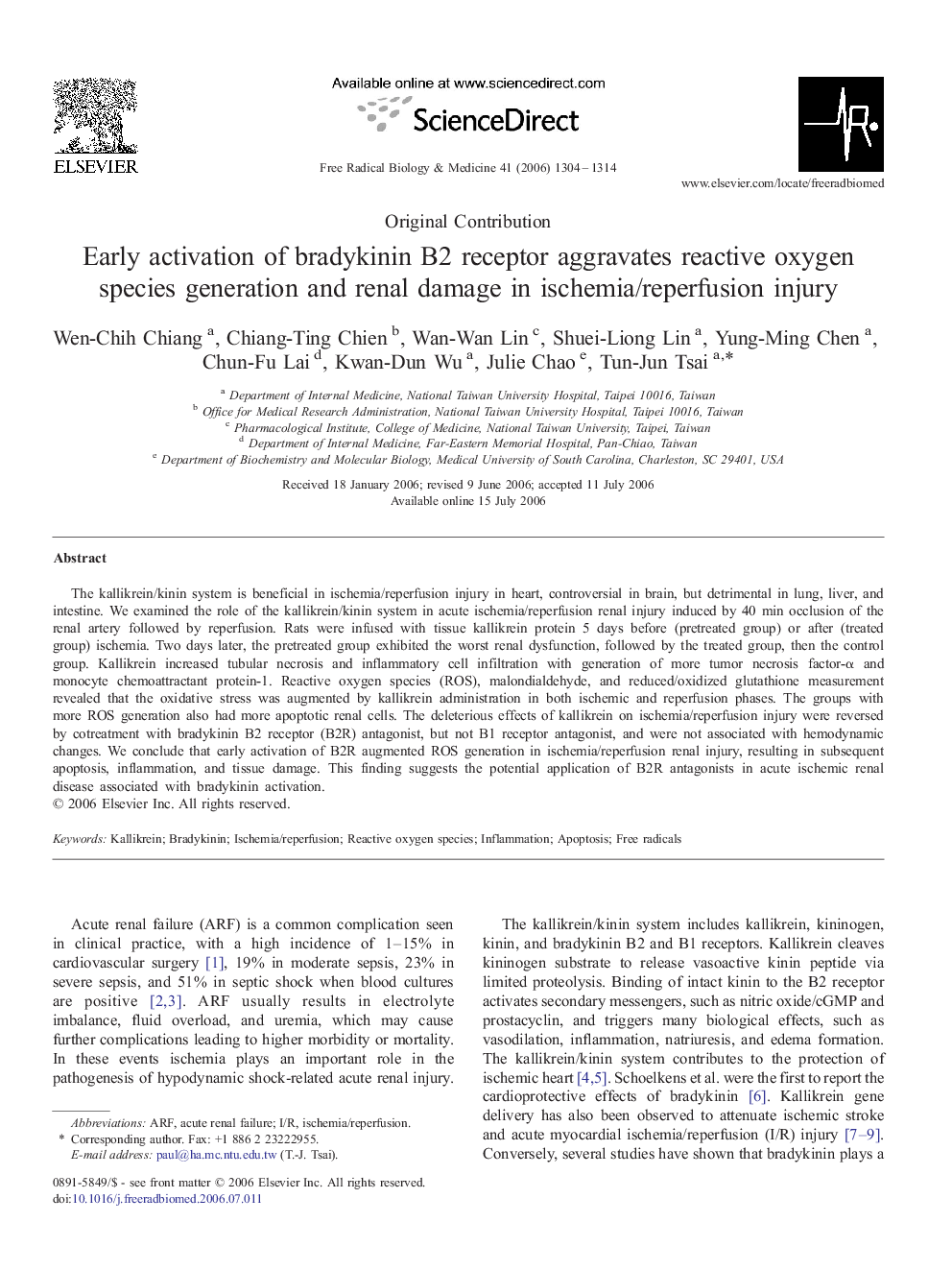| Article ID | Journal | Published Year | Pages | File Type |
|---|---|---|---|---|
| 1911394 | Free Radical Biology and Medicine | 2006 | 11 Pages |
The kallikrein/kinin system is beneficial in ischemia/reperfusion injury in heart, controversial in brain, but detrimental in lung, liver, and intestine. We examined the role of the kallikrein/kinin system in acute ischemia/reperfusion renal injury induced by 40 min occlusion of the renal artery followed by reperfusion. Rats were infused with tissue kallikrein protein 5 days before (pretreated group) or after (treated group) ischemia. Two days later, the pretreated group exhibited the worst renal dysfunction, followed by the treated group, then the control group. Kallikrein increased tubular necrosis and inflammatory cell infiltration with generation of more tumor necrosis factor-α and monocyte chemoattractant protein-1. Reactive oxygen species (ROS), malondialdehyde, and reduced/oxidized glutathione measurement revealed that the oxidative stress was augmented by kallikrein administration in both ischemic and reperfusion phases. The groups with more ROS generation also had more apoptotic renal cells. The deleterious effects of kallikrein on ischemia/reperfusion injury were reversed by cotreatment with bradykinin B2 receptor (B2R) antagonist, but not B1 receptor antagonist, and were not associated with hemodynamic changes. We conclude that early activation of B2R augmented ROS generation in ischemia/reperfusion renal injury, resulting in subsequent apoptosis, inflammation, and tissue damage. This finding suggests the potential application of B2R antagonists in acute ischemic renal disease associated with bradykinin activation.
